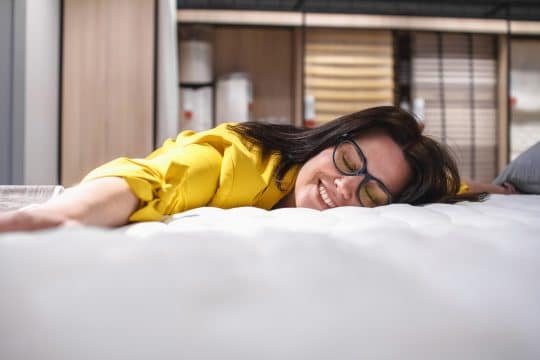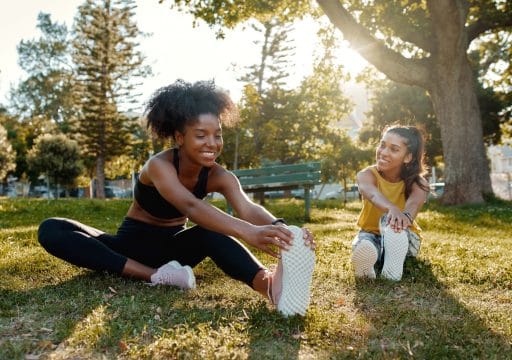- Your cart is empty
- Continue Shopping
New Year’s Resolutions: How Diet and Exercise Affect Your Sleep

January is the month of new year’s resolutions. It turns out that a lot of goals like getting fit, losing weight, and going on a diet are popular resolutions but really tough to sustain. According to a report from U.S. News, February marks the end of those resolutions for more than 80% of people. The “emotional friction” that comes with making a big lifestyle change is often too much to manage among the other stress we face in daily life.
So, we’d challenge you to add “get enough high-quality sleep” to your January resolutions this year. First, sleep is incredibly important to your overall well-being, and according to the Centers for Disease Control and Prevention, more than 30% of Americans don’t get enough.
Second, getting the recommended seven to eight hours of sleep per night has the added benefit of positively reinforcing your other health goals and helping you manage stress. In other words, getting enough sleep might help you see those resolutions through the year.
Exercise helps you sleep better
Exercise has proven to be a very effective way to improve the quantity and quality of sleep you get. Anecdotally, you probably know this to be true. Ever felt exhausted after a tough workout, a day of snow skiing, or a long afternoon hike?
And even though you may have heard that exercising in the evening or at night can make it harder to sleep, studies now reveal that easy to moderate exercise before bed can actually improve sleep quality. So, get your exercise in when you can and according to the timing that works best for your body.
Better sleep gives you more energy for exercise
Getting enough sleep can also indirectly help you stick to your exercise routine. For example, inadequate sleep has been associated with lower activity levels during the day. Which makes sense: when you feel fatigued, you tend to skip a workout or have less energy to put into your daily exercise.
And even though the study linked above didn’t find that getting better quality sleep directly caused improvements in physical activity levels, quality shuteye does give you more energy. It’s certainly easier to commit to exercising when you feel energetic.
Eating well helps you sleep better
Eating foods that are high in fiber, minimizing added sugars, and maintaining a balanced diet can help you get better sleep. Plus, improving your diet can help with weight loss, which is recommended if you’re dealing with conditions like sleep apnea.
Be mindful of your caffeine intake, and remember that caffeine can stay in your system for more than six hours. So if it’s preventing you from falling asleep easily, ditch the afternoon cup of joe.
Avoid foods that are fatty or spicy before bed. If you suffer from acid reflux or deal with indigestion, this is important. You also might want to check out adjustable bed foundations, which give you the benefit of a more upright sleeping position.
Stay hydrated all day long. Don’t push all of your water intake to evening hours by chugging 40 ounces of water before bed. That will only ensure that you wake up a few times in the night to use the bathroom.
Lack of sleep might sabotage your plans to eat healthy
One study found that after sleep deprivation, individuals experienced a significant increase in the desire for high-calorie foods. Translation: when you’re overly tired, those cream-filled donuts look especially tasty. In this case, being sleep deprived certainly doesn’t help you follow your new year’s goals of eating well!





